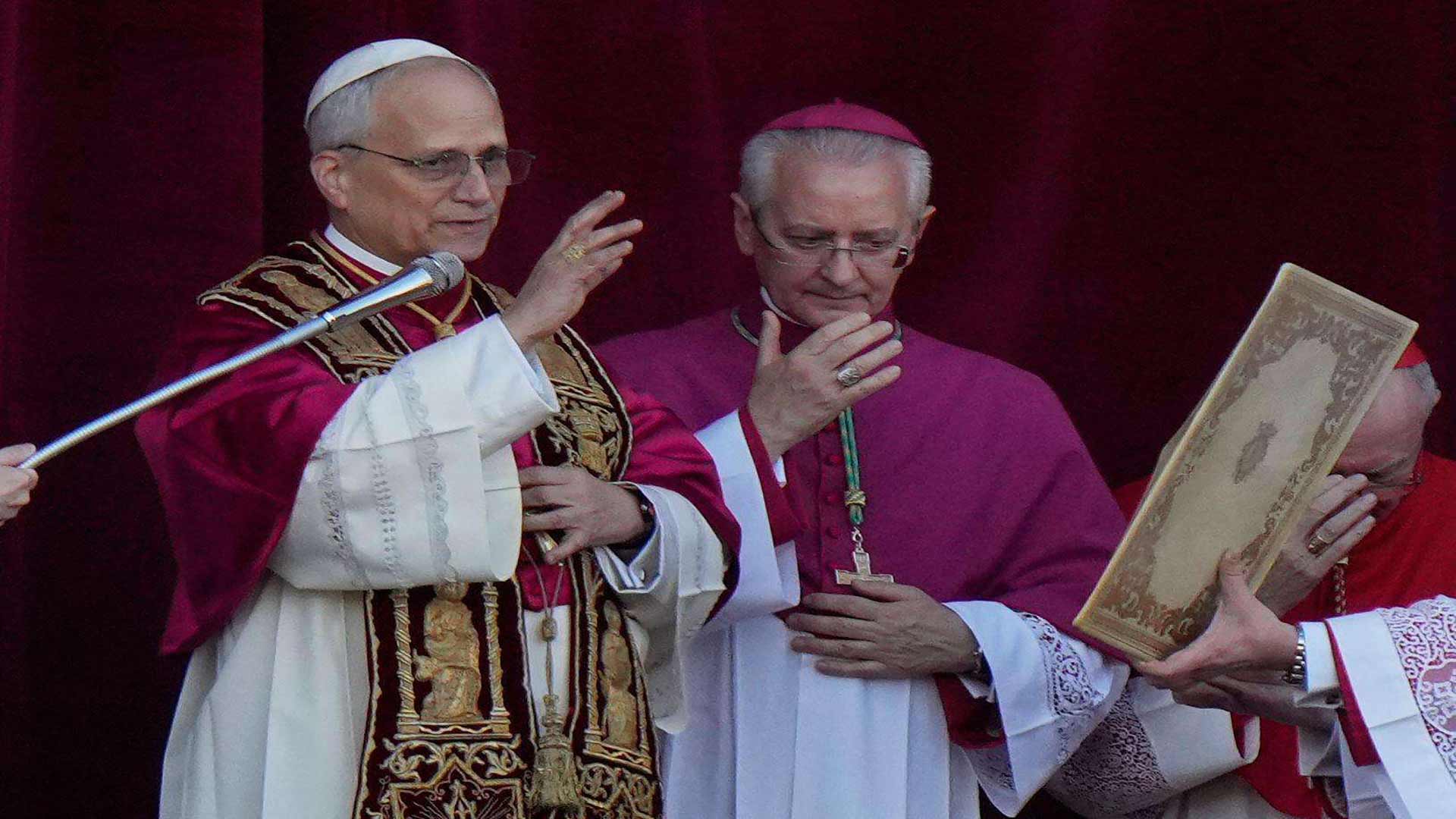A Pope of Great Promise
The outcome of a papal conclave is always a surprise. Not only is the august assembly held cum clave, meaning under lock and key, the huge number of cardinal electors – who double as candidates – makes it impossible to guess who will emerge as the pontiff. Even though well before a conclave begins, different agencies float names of the papabile, these have only indicative value. The cardinal electors make their final decision on the spur of the moment, by the inspiration of the Holy Spirit. That’s how unpredictable a papal conclave can be.
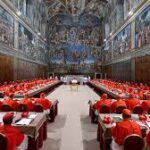
The secular world, however, looks at it as a numbers game or a power struggle. No doubt, historically, Europe has had the largest number of Popes (235/266), with Italians outnumbering them all (217). Yet it cannot be said that the papal office is racially defined. For instance, in the early centuries even the so-called Dark Continent produced Popes, whereas the white New World got its first one as late as the twenty-first century.
Furthermore, while 15 countries have produced Popes till date, including tiny Albania way back in the eighteenth century, longtime superpower USA had to wait until the twenty-first to have their very own top man at the Vatican. He possibly comes as a divine reward for the resurgence of faith and devotion (particularly with the National Eucharistic Revival) in his native country; but he has not trumpeted his national affiliations.
Finally, there will always be countries not making the grade, but surely no country or race will be deliberately excluded. So, no matter which part of the world the Pontiff comes from, he never fails to surprise.
First Impressions
The rise of Cardinal Robert Francis Prevost as an American is as good a surprise as it would have been if he were an Indian or an Australian. So long as he steers the Barque of Peter with faith and divine authority – that is all that matters.
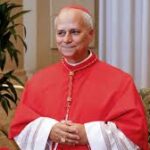
That is why, even before I got to see the man in the Loggia delle Benedizioni, I felt the blessing of the name he had assumed: Leo XIV. Much as we may say ‘What’s in a name?’, a name is not without historical and cultural significance. It is selected after much reflection and with a purpose. Presently, it symbolises strength, courage, power and the determination to begin a course correction. It represents the divine kingship and majesty of Christ. It stands for the teaching authority of Jesus, who is the ‘Lion of the Tribe of Judah’ (Rev 5:5).
After a quick minute of great anticipation, the French window finally opened. I saw the man in traditional vestments. What most impressed me was his calm and gentle demeanour, humility and unpretentiousness. He came across as a simple and sincere prelate. He seemed authentic and accessible, straightforward and down-to-earth, with the ability to call a spade a spade. While he looked at the cheering crowds with tenderness, he was far from being over the moon with delight.
An unmistakable change in that iconic balcony! I said to myself, let bygones be bygones; the past is behind us – the present and the future are all that matter. The Loggia of Blessings was to me a window on the future. I began to imagine Leo XIV restoring all things in Christ. Just then, I heard the Vicar of Christ's deeply evocative greeting – Peace be with all of you! – ‘the first greeting of the Risen Christ, the Good Shepherd who gave His life for God's flock.’
Like a tender father, the Pontiff wished ‘this greeting of peace to enter your hearts, to reach your families, and all people, wherever they are, all of the people, all over the earth.’ He followed it up with reassuring words: ‘God loves us, God loves you all, and evil will not prevail! We are all in the hands of God.’ Calling disciples of Christ to join hands and move forward, he focussed on the Divine Master alone, saying: ‘Christ precedes us. The world needs His light. Humanity needs Him as the bridge to allows it to be reached by God and by His love.’
And then, lo and behold, there came words and phrases that had almost fallen into disuse: his was a call to be ‘faithful to Jesus Christ, without fear, to proclaim the Gospel, to be missionaries.’ Pledging his service as a true son of Saint Augustine, he turned the people’s gaze to ‘that homeland that God has prepared for us.’ A man of deep faith and experience indeed.
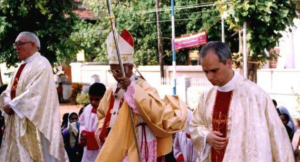
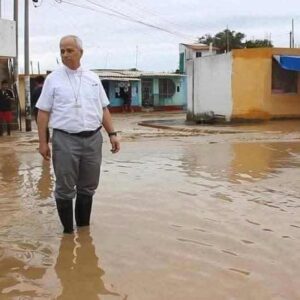
The Holy Father had a special greeting to the Church of Rome and to his diocese of Chiclayo, in Peru, ‘where a faithful people accompanied their bishop, shared their faith and gave so, so much to continue being a Church that is faithful to Jesus Christ.’ Words of gratitude, of encouragement, of zealous devotion are what we heard from the Loggia that blessed night.
But that is not all. His Holiness reminded the gathering that it was ‘the day of the Supplication to Our Lady of Pompeii. Our Mother Mary always wants to walk with us, to be close, to help us with her intercession and her love,’ and befittingly ended his first Urbi et Orbi blessing with a Hail Mary. I felt immensely comforted.
Tasks Ahead
The Lord our God has favoured us with Pope Leo XIV, thanks to the prayers of many zealous souls. For over a decade now, the likes of German Cardinal Gerard Müller, Guinean Cardinal Robert Sarah, US Cardinal Raymond Burke, German Bishop Athanasius Schneider; theologians, lay individuals and groups had been sounding the alarm bell about the waves of the world mercilessly buffeting the Barque of Peter. Providentially, the new Captain will steer the drifting ship back on course.
To my mind, the tasks ahead are many. Meanwhile, to maintain our integrity as Catholics, we must turn the spotlight on three fundamental issues. First, we must stress the importance and non-negotiable nature of the Sacred Tradition and the Holy Magisterium of the Church. As Cardinal Müller recently said, ‘the question is not between conservatives and liberals but between orthodoxy and heresy.’
Secondly, we must address the wrong notion that even some of us Catholics have of the Church’s mission. It is our duty to make Christ known, present, and active in the world. We must lead people toward a deeper relationship with Him and with one another. The Church is not a ‘humanitarian organisation doing social work’ but a spiritual lighthouse that affords a view of eternal life.
Thirdly, how can we recover from the identity crisis that ails us? It is fuelled by gas lighters, some of whom have infiltrated the Church. It is the proverbial smoke of Satan clouding our minds and making us look for validation from the secular world. The antidote is to appreciate, love and be grateful for the treasures of our Faith and our Church.
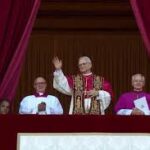
Let us entrust these issues and many others too long to list here to the leadership and wisdom of Pope Leo XIV and be continually surprised and amazed by God's work in our midst. No matter how hard it is to figure it out, he occupies the Chair of Peter by the express will of God, Who has said: ‘So is My word that goes out from My mouth: It will not return to Me empty, but will accomplish what I desire and achieve the purpose for which I sent it.’ (Is 55: 11).
Long live Pope Leo XIV!
Banner: https://www.thetablet.co.uk/news/first-urbi-et-orbi-blessing-of-the-holy-father-leo-xiv/
Prevost at the Vatican (2023) https://www.france24.com/en/europe/20250508-pope-leo-xiv-profile-robert-prevost-from-peru-missionary-to-first-american-pontiff
